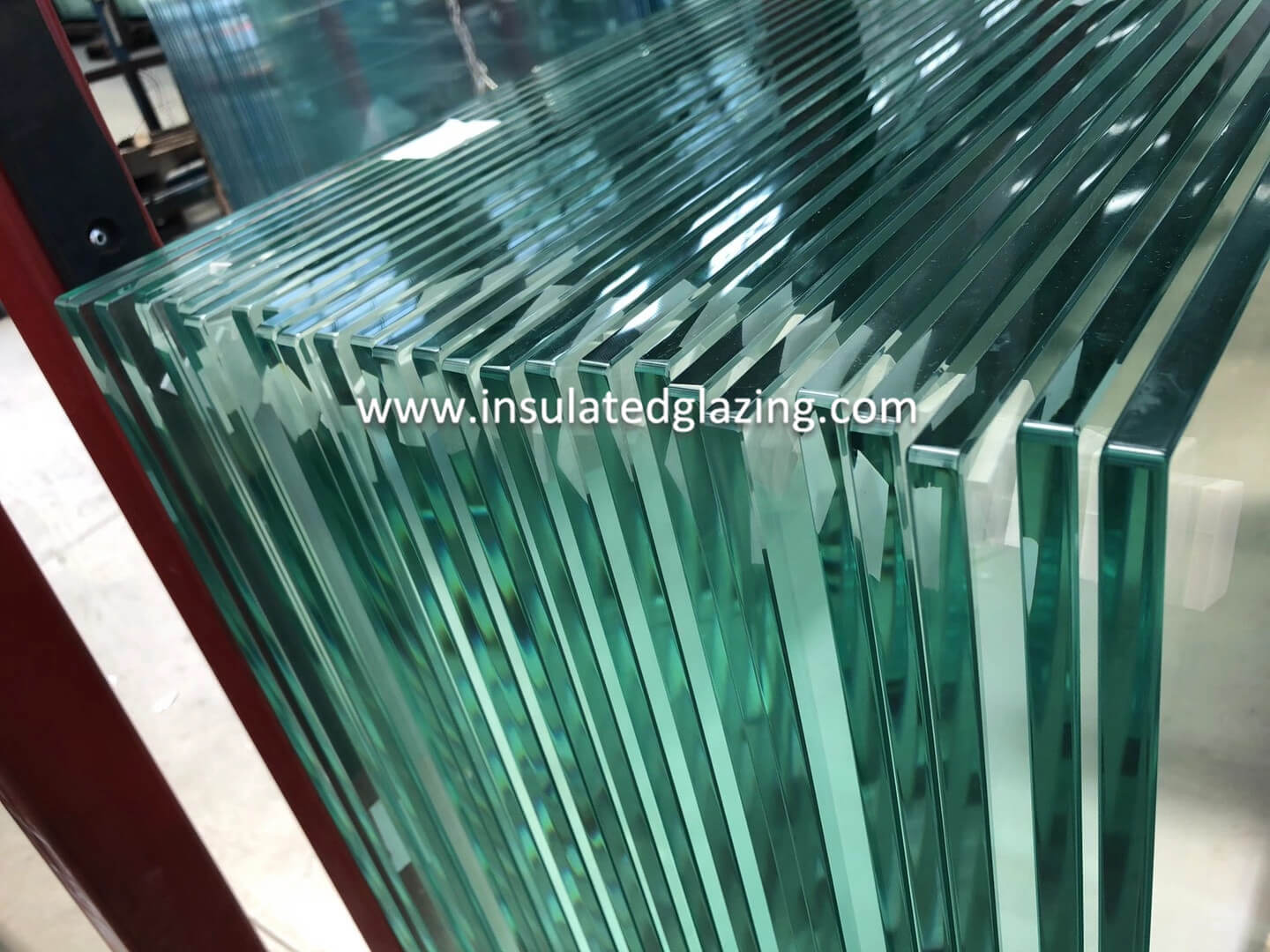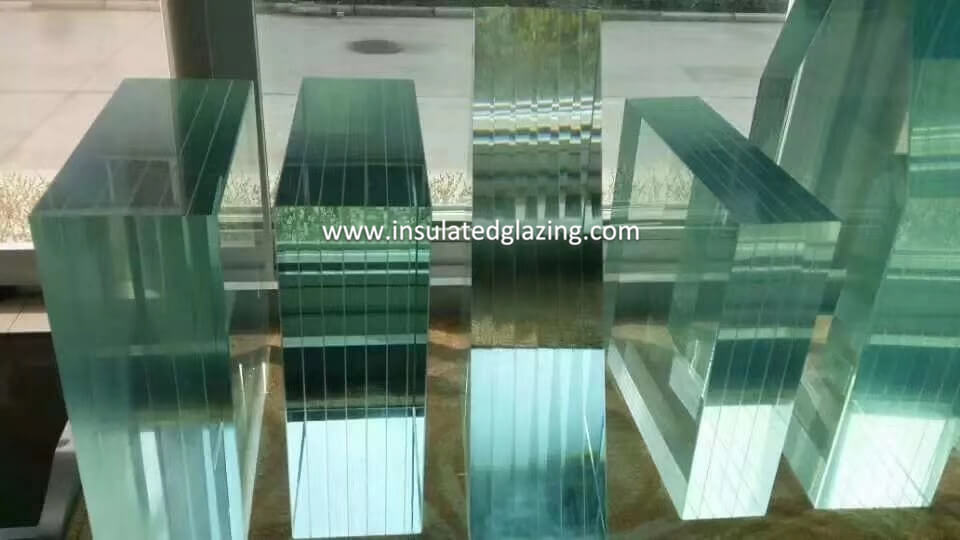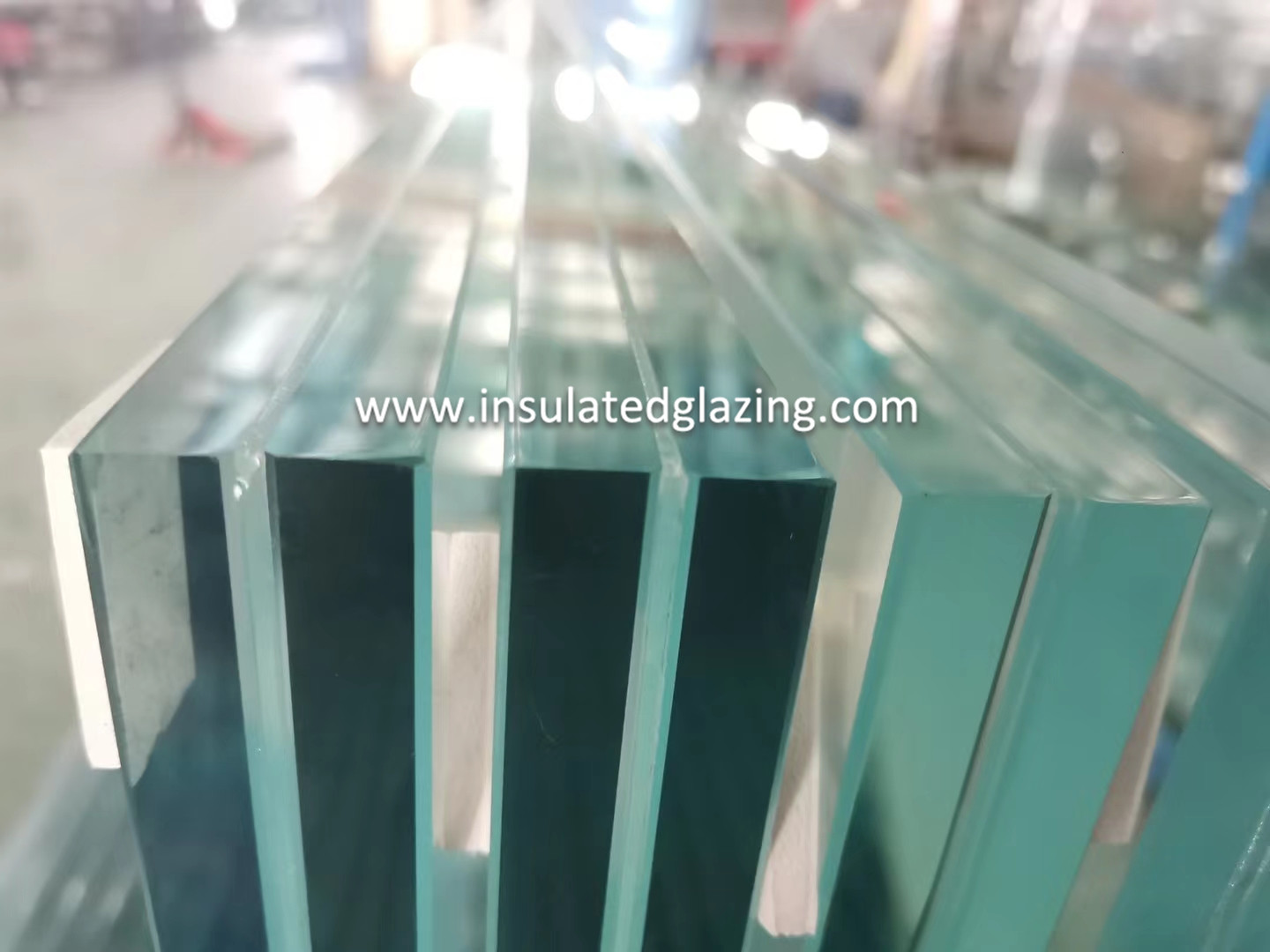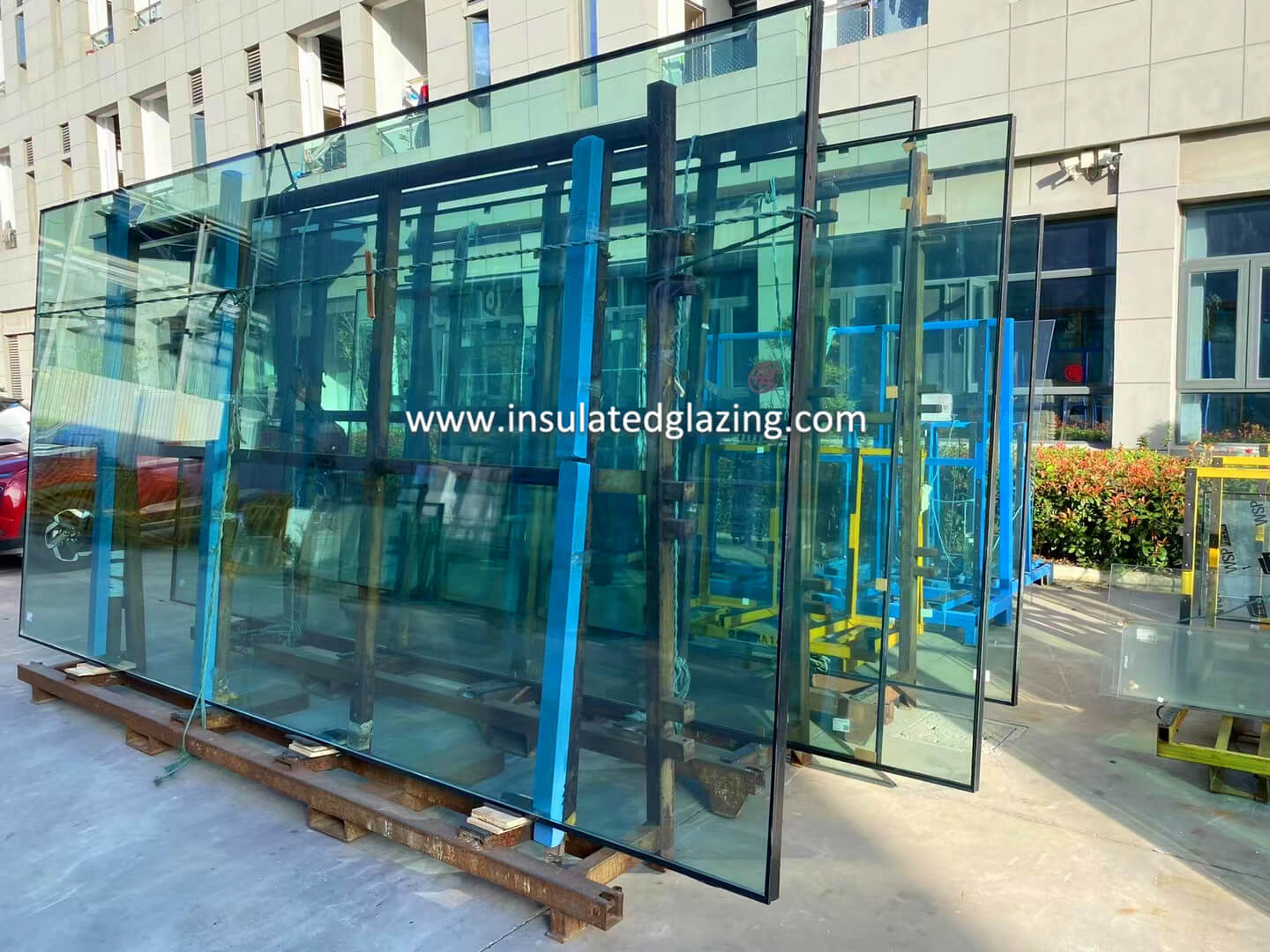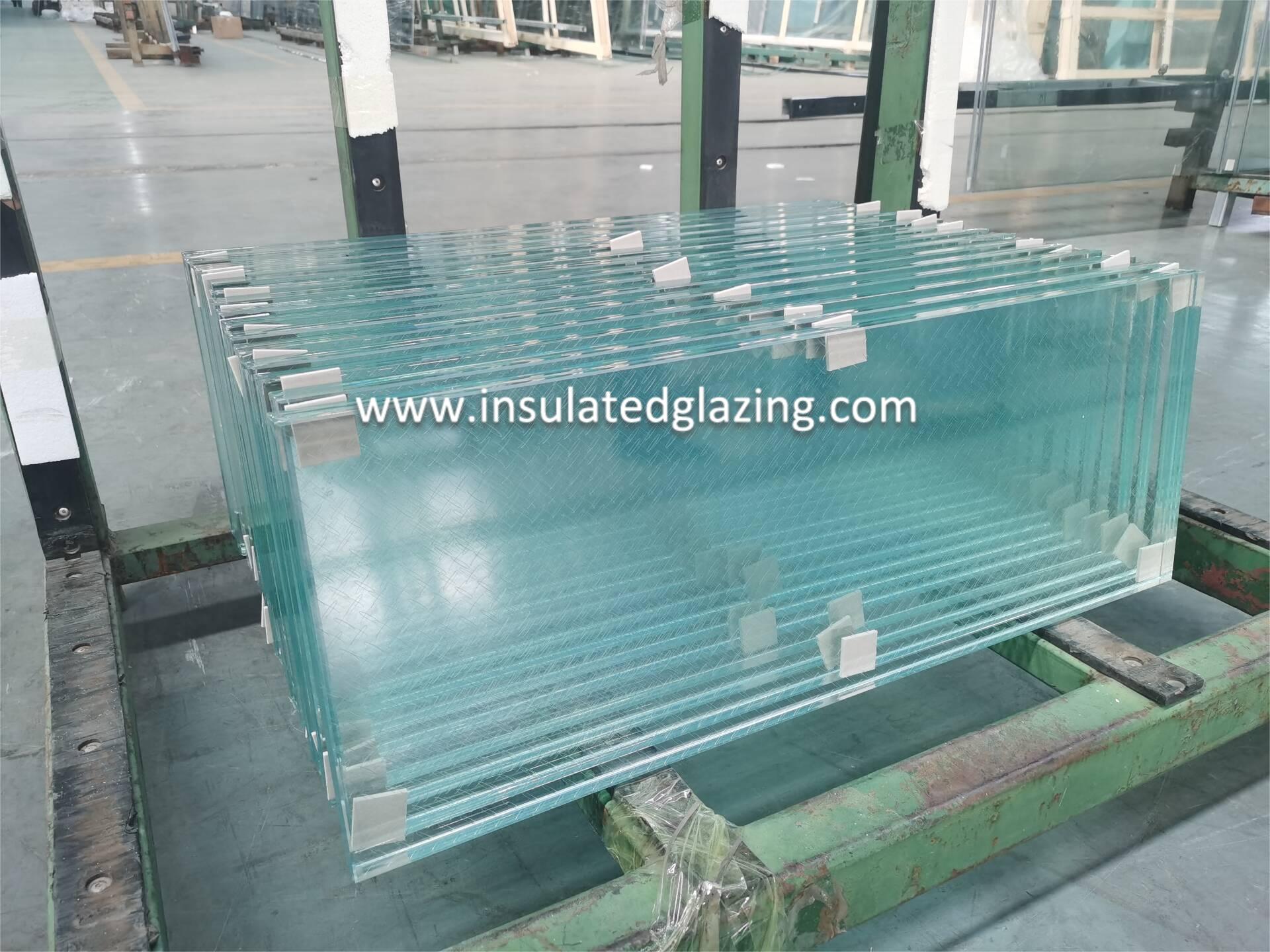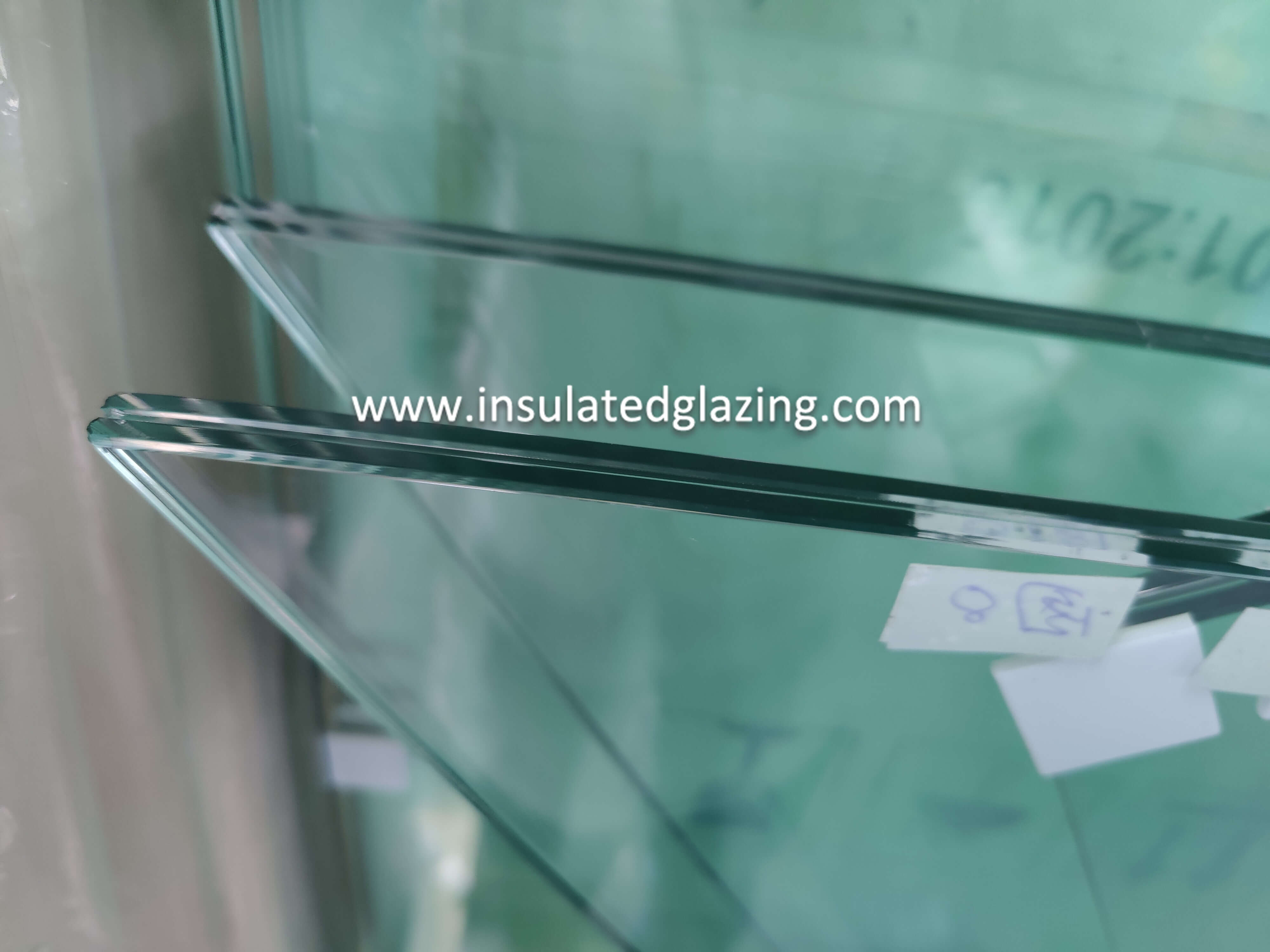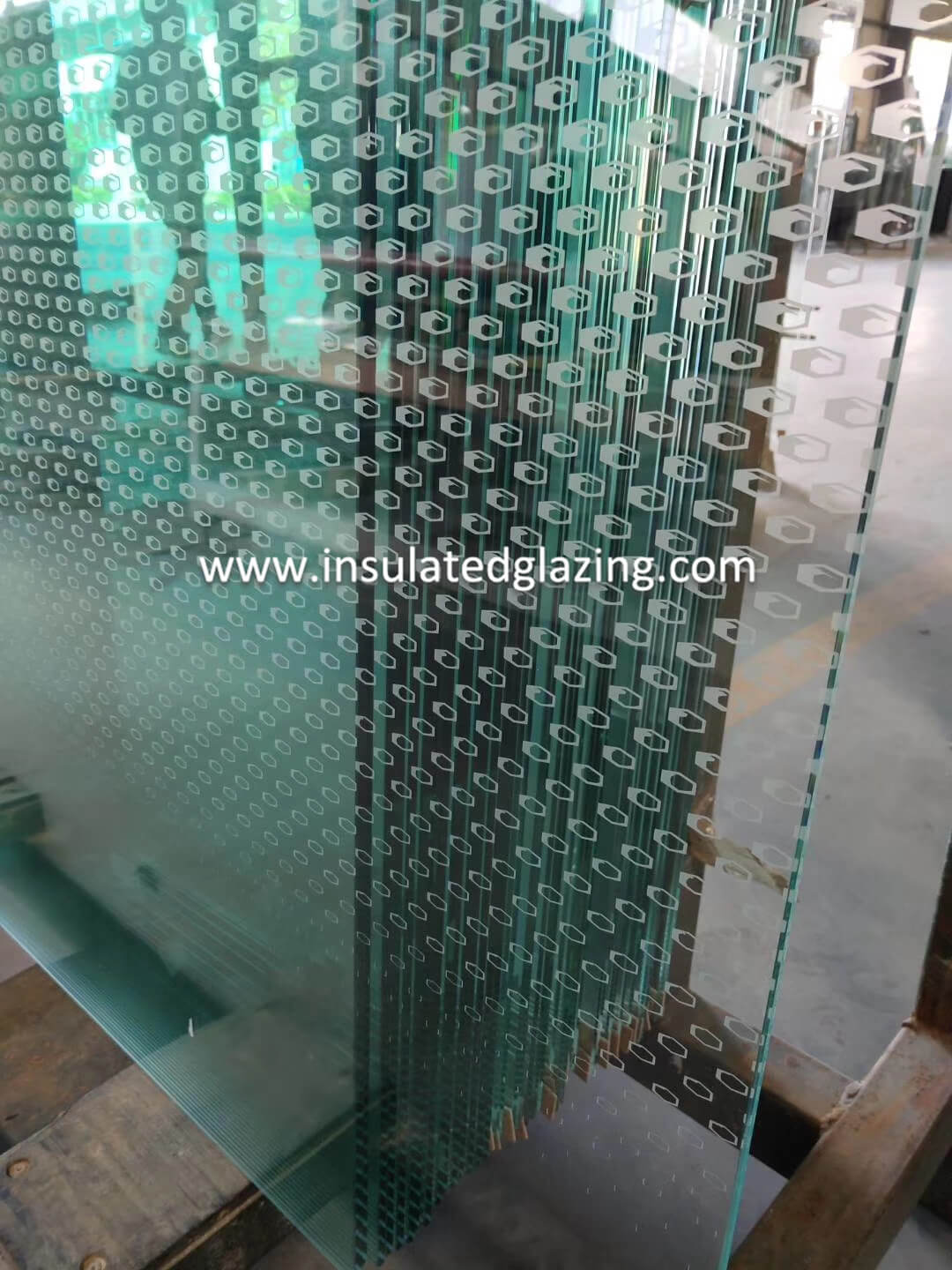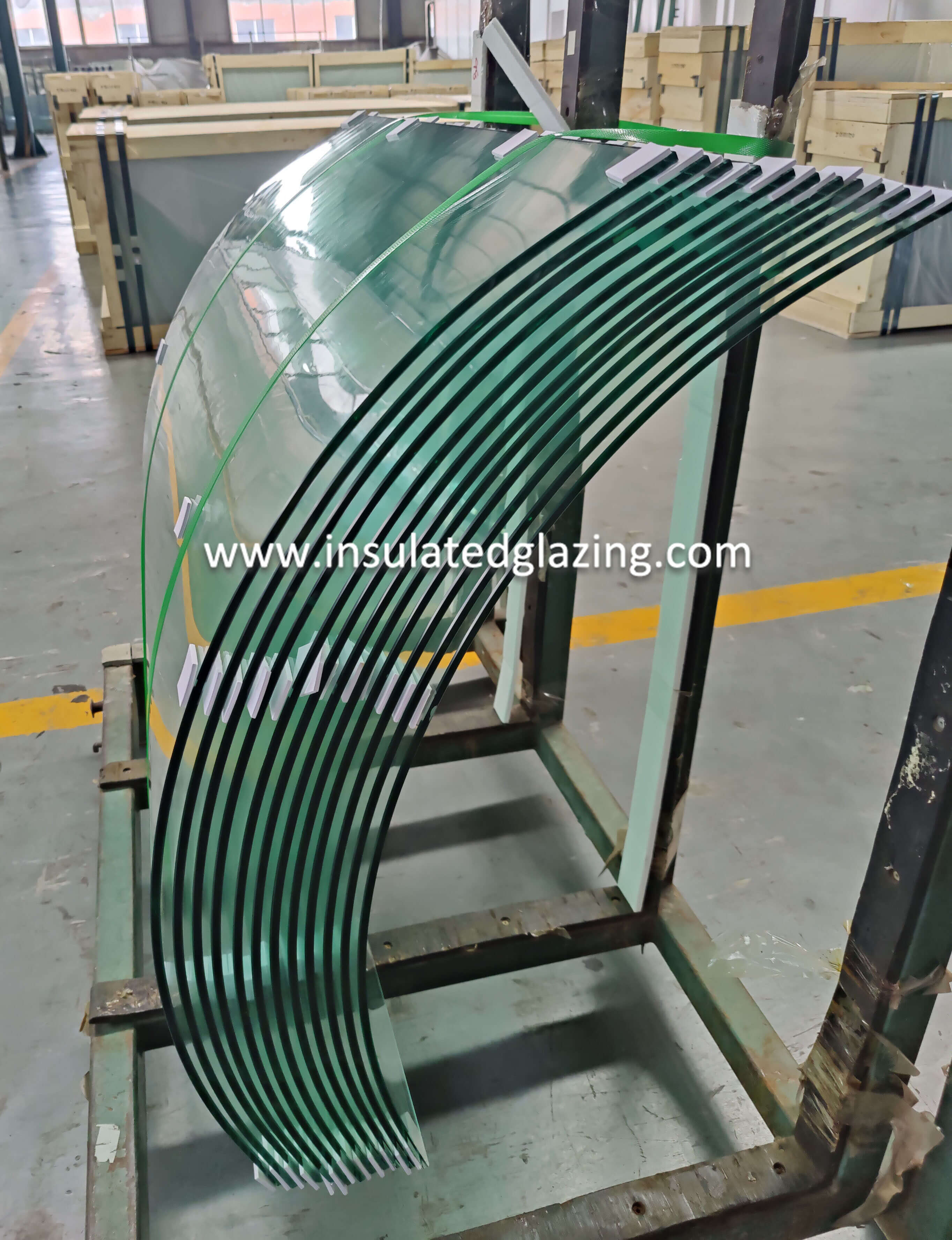
What types of films are used for laminated glass?
Laminated glass films typically include PVB film, SGP film, EVA film, etc. Currently, the most commonly used film in construction is still PVB film.
SGP laminated film is colorless and transparent, with a yellowing index of less than 1.5, while the yellowing index of PVB interlayer film is 6-12. Therefore, SGP film is favored for ultra-clear laminated glass.
PVB film:
PVB film laminated glass refers to laminated glass made by sandwiching PVB interlayer film between two or more glass panels.

The main component of PVB film is polyvinyl butyral, which is a condensation product of polyvinyl alcohol and butyraldehyde.
PVB film thickness: 0.38mm, 0.76mm, 1.14mm, 1.52mm, 2.28mm.
The thickness of PVB film is determined by the size of the glass. The single-layer thickness of PVB film is 0.38mm. If the size increases, multiple layers of film can be used.

What are the benefits of PVB film laminated glass?
PVB interlayer film can reduce the amount of noise penetrating through the glass, reduce the decibels of noise, and achieve sound insulation. Laminated glass made with PVB plastic interlayer film can effectively block common noise in the range of 1000-2000Hz.
SGP film:
SGP film is a new type of polymer material with high molecular weight and high elastic modulus, which is bonded by ionic bonds. SGP film (ionic film) is a mixture of polyvinyl butyral and metal salt ions, and SGP is the abbreviation of DuPont's SentryGlas® Plus film.

What are the benefits of SGP laminated glass?
SGP film has high strength and shear modulus, and excellent mechanical properties.
The shear modulus of SGP is 100 times that of PVB, and the tear strength is 5 times higher than PVB. After SGP lamination, the interlayer between the two glass panels does not slide significantly when the glass is subjected to force, and the two glass panels work as a whole, similar to a single glass panel of the same thickness. As a result, the load-bearing capacity is twice that of PVB laminated glass of the same thickness. At the same load and thickness, the bending deflection of SGP laminated glass is only 1/4 of that of PVB laminated glass.
SGP film has good edge stability and compatibility with structural adhesives.
Edge stability refers to the durability of the exposed edges of laminated glass under atmospheric conditions. PVB interlayer film is not moisture-resistant and is prone to delamination under the action of water vapor, requiring edge sealing. SGP film has good edge stability, is not sensitive to moisture, and does not delaminate under exposed conditions. It can be used without edge sealing. After 12 years of sealed and coated compatibility testing, no adverse reactions were observed.
SGP film is colorless, transparent, and resistant to discoloration, with excellent transparency and a yellowing index below 1.5.
SGP laminated film itself is colorless and transparent, and has good weather resistance, not easily yellowing. The yellowing index of SGP film is less than 1.5, while the yellowing index of PVB film is 6-12. At the same time, SGP film can maintain its initial transparency even after many years of use, while ordinary PVB interlayer film gradually becomes more yellow during use.

Excellent safety performance and resistance to intrusion after glass breakage.
Ordinary PVB laminated glass, especially tempered laminated glass, will undergo significant bending deformation and have the risk of complete detachment once the glass breaks. When glass is horizontally installed on a skylight, the risk is even greater. SGP laminated glass with SGP interlayer film has good overall integrity. The tear strength of SGP film is 5 times that of PVB film, so even if the glass breaks, the SGP film can bond the broken glass to form a temporary structure with minimal bending deformation. It can also withstand a certain amount of load without the entire glass panel falling down. This greatly improves the safety of the glass.
Superior weather resistance and resistance to aging.
After undergoing natural aging tests in Florida, accelerated weathering tests in Arizona, boiling and baking experiments, no delamination or bubbling issues were observed after 12 years.
Excellent bonding performance with metals.
SGP has high bonding strength with metals such as aluminum, steel, and copper. Laminated glass made with SGP film and metal wires, meshes, or plates can greatly enhance the performance of glass after breakage, with strong resistance to destruction and intrusion.
WE WILL REPLY YOU IN 24 HOURS.

